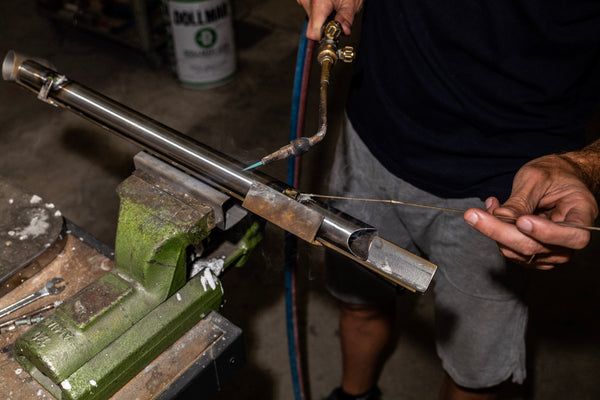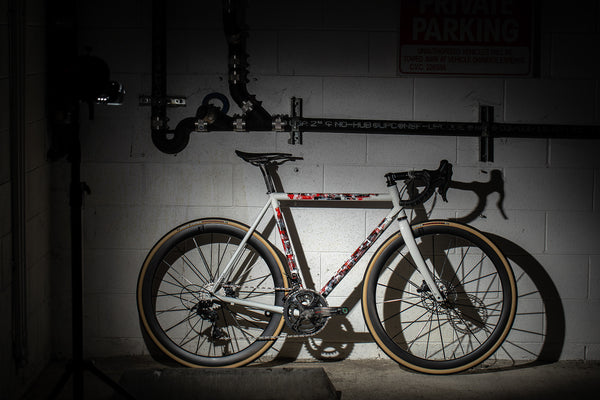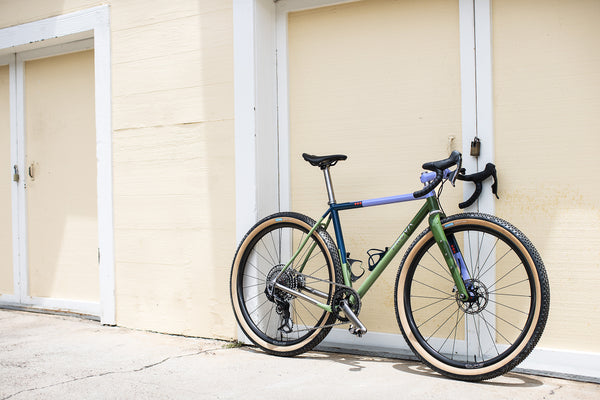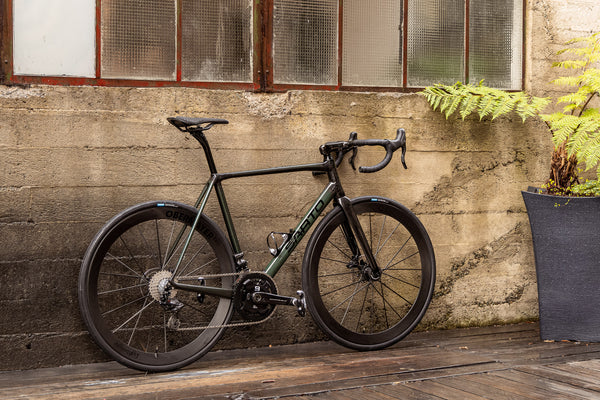I'm alive. Barely.

What happened? What's with the electrodes? No, I didn't crash. No, I didn't overtrain. I wasn't involved in some sort of fancy study.
On July 6th, everything kind of changed. It was a Wednesday. It was, actually, a good Wednesday. I'd just finished up a decent interval workout before work. I walked into my apartment, feeling quite excellent.
My post-ride ritual was beginning to set in. Directly into the blender - 1.5 scoops of recovery mix, a metric ton of ice, a cup of frozen berries, a few glugs of almond milk, and a dash of maple syrup. Given that I'm perpetually running late, I slammed the frigid concoction directly into my face, still mostly kitted. The thick slurry began to cause what most of us would recognize as a brain freeze. I stuck my tongue to the roof of my mouth in an attempt to stave off frozen gluttony's consequence, and my heart skipped a beat.
And, terrifyingly, it kept skipping.
As an athlete - especially one who's had a fairly high level of aerobic fitness at times - I'm used to my body doing weird things. Most people who've put in high-volume aerobic training know what I'm talking about. It's easy to pass out when standing too quickly, because of such a low resting heart rate (along with the accompanying low resting blood pressure). Occasional little heart skips and flutters that last a couple seconds at most. Freezing to death when it's a mid-summer's day. They're all signs that what we're doing is pushing the limits of what the human body has evolved to do. Sustaining 70-80% of maximum cardiac output for hours on end, for days on end, for weeks on end - it's not something our predecessors ever really dealt with.
Heart. Skipping. Still skipping. In my daily tardiness, I was still wearing my heartrate monitor. I looked over at my SRM head unit on my bike. My heartrate was bouncing around between 150 and 170 - a solid endurance to tempo-level effort, all while standing in the comfort of my own home. My heart was beating uncontrollably without any rhythm, flopping around like a freshly-caught fish in my chest. Immediately, I had a fairly good idea of what was going on. Given the above biophysical weirdness associated with training, I'd taken an interest in the concept of "too much exercise". What level was too much, and what did it do? This article in Velonews had piqued my interest, exposing me to the phenomenon of heart arrhythmia in trained athletes. I had always kind of assumed that it was something that was likely to happen to me - and now it was.
I putted around home, wondering what I should do - the concept of going to the hospital was terrifyingly expensive. After all, I was invincible. My wife was out on a ride of her own, and a call to her went unanswered. I decided the problem would fix itself, and proceeded with the smartest thing to do - I got ready for work, and hopped on my bike to roll the 6km to Above Category. As I began to softly pedal, my already-gonzo heartrate climbed, and began to hit 190bpm with little more than recovery-pace exertion. A modicum of panic began to set in, and I stopped in front of a convenience store, shoving a tourist aside to buy a bottle of aspirin. I took three in the parking lot as my wife rolled by on her way home. I flagged her down, and within five minutes we were on our way to the ER.
I walked into the deserted emergency room, smiling. The receiving nurse asked me what was wrong. I held up my heart rate monitor, which was met with her wide eyes. I was quickly whisked (even faster than when I've walked into the ER gushing blood) into the back, and rapidly plugged into an EKG as well as heart rate suppressants delivered intravenously. The doctor confirmed: My heart was indeed in arrhythmia - atrial fibrillation, commonly known as "afib". The top two (of four) chambers of my heart were not pumping blood, instead, quivering uncontrollably. The cause? Somewhere, something on my heart had short-circuited, and the electrical signal that controls heartbeat had scrambled. The possible consequences? A stroke. Blood pools in the two quivering chambers, which can eventually coagulate and clot, leading to a blockage somewhere down the line. Normally, afib is seen in patients much older than 28, and usually accompanying a host of other age or lifestyle-related heart problems. I was an anomaly.
While my heart rate had dropped thanks to medication, there was still a trout tap dancing in my chest. There are two ways to reset the heart: Let it happen on its own (hopefully), or "cardioversion". You know, with the paddles. The staff at the ER decided that, given my age, immediately giving the ol' ticker a shock wasn't going to be necessary. Instead, they gave me heart rate suppressant drugs, and decided to give it a week to see if I converted back to a normal rhythm on my own. If not? Blood thinners and the paddles! Other instructions included: Eliminating my daily 10-12 cups of coffee habit, avoiding alcohol, and limit riding to an hour of easy exertion per day.
I laid in the ER, pondering. I'd been on track to race - and do all right at - Oregon's Cascade Cycling Classic. An insult to injury was the blood work I got back during the visit, with a hematocrit at almost 49 and high hemoglobin count in the middle of a heavy training block (this means: Going fast is easy). Worse, I was terrified that I'd never be able to ride my bike again. At least, not ride it like I knew how to ride it. I dreamt of alternative activities, ones that wouldn't tax my enfeebled cardiovascular system. Surfing? Too much swimming. Motorcycle racing? Too much heart-pounding. Golf? Too much walking. I settled on shuffleboard. Possibly chess. The thought of accepting a relatively sedentary life filled me with gloom. More importantly, I'd suffered a serious brush with something that could quite easily kill me, a blow to my own sense of infallibility. It was a new feeling. A perspective-shifting feeling.
I went home. My heart was still somersaulting, reminding me that I was mortal. Almost exactly one day later, as I was sitting at my desk, it decided it'd had enough and resumed beating normally. Dropping coffee entirely left me with pulsing headaches, and coupled with the heartrate suppressants, total exhaustion. I couldn't ride like I wanted to. I was predictably going out of my mind, a product of my own relative environ. Finally, a week later, a follow-up visit. The good news? I could ride my bike normally again, but was advised against racing Cascade week later. I could also drink 1-2 cups of coffee per day. The bad news? After the pile of tests, there was no conclusive overall cause to my episode of afib. No deep, in-depth analysis...just hypothesis. Maybe it was the vast amount of exercise coupled with excessive caffeine intake. Maybe it was a random misfire. In any case, the prognosis was less than enthusiastic. If I had another episode, I needed to return to the hospital, where eventually I'd undergo an ablation - essentially an attempt to burn the surface of the heart where the short-circuit was occurring, in an effort to keep it from happening again.
Where does this leave the Skinny on Power? It means I've shifted my goals - shifted them later. In the two weeks since my last doctor's visit, I've done some recalibration. It's a shame to waste good training and good form, and the fall event calendar is packed. Stay tuned for next week's update - things might get a bit weird.









Back to Journal